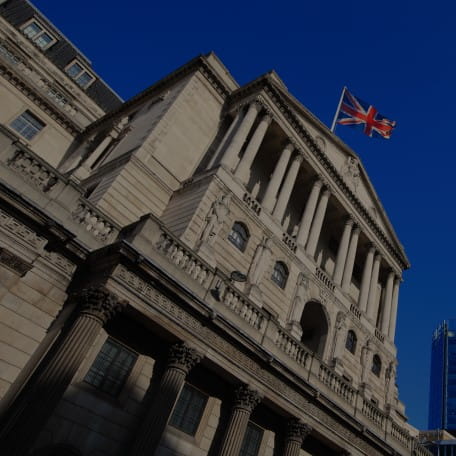Recent pledges by the Chinese government to provide more financial support for the economy gave stock markets in Asia and the UK a clear boost. But the announcements of further stimulus to boost growth came amid clear signs that the post-Covid recovery is slowing, while analysts recently downgraded economic forecasts for the world’s second largest economy. So should investors be turning towards or away from China?
In the first quarter of this year China’s economic growth was better than expected, recording a year-on-year increase of 4.5% in GDP between January to March, figures from the National Bureau of Statistics show.
But since then, it has been a different story with weak domestic demand and difficult external factors including widespread economic slowdown and the ongoing war in Ukraine acting as a drag on growth.
While the news of further economic stimulus by the Chinese government sounds positive, there is less certainty about the form it will take or the impact this will have.
Liontrust fund manager Ewan Thompson believes that any economic measures introduced may be relatively limited in scope. He says: “Stimulus measures have typically tended to be relatively small and there is lots of rumour and counter rumour, so the exact scope of the policy response is in any case unclear. The government tends to take a piecemeal approach, rolling out something in a local area to see how it goes before rolling out further.”
China saw amazing growth after the Global Financial Crisis (GFC) when it launched a massive stimulus package. However, stimulus packages since then have tend to disappoint investors hoping for a policy response of a comparable scale.
“The last year of Covid lockdowns was extremely damaging for the Chinese economy and when the government announced its 180-degree change to opening up again, people were understandably excited. While economic momentum has undoubtedly recovered given the re-opening of the economy, as data has come in they have tended to be somewhat below what the market had been hoping for. Sentiment is now back where it was at the end of November.
“There are also questions around what good does the economic stimulus do now and exactly where it could and should be targeted. Each round of stimulus has less effect, and more is needed to achieve the same outcome as was the case previously.”
The stimulus measures taken by the government in recent times have been relatively focused on credit easing and bringing rates down, although in fact rates were not that high in the first place. Furthermore, Thompson points out that even though rates are lower, demand for credit is low as ‘companies and individuals don’t want to borrow’.
Politically, China is also febrile in terms of the world stage. China threw its support behind ‘strategic partner’ Russia following the invasion of Ukraine which was an unpopular move with many. Investors have reduced their exposure to China both because of these geopolitical tensions and also as a result of China cracking down on overseas firms.
Not only is China no longer viewed as the ‘workshop of the world’ – rising wages mean that title has gone to Mexico which is notably cheaper – supply chains in Asia are also broadening out. There is diversification away from China, with governments and businesses increasingly looking to reduce their reliance on China. One clear example is the move to produce growing numbers of iPhones in India rather than solely in factories in China.
A notable issue for China in terms of achieving growth lies with the property market. There is an unofficial classification system in which cities in China are judged to be either Tier 1, 2, 3 or 4, depending on their size and prosperity, demographics and consumer sophistication. Cities classified as Tier 1 are urban centres, large cities and at this level the property market remains solid.
However, the population in China is shrinking steadily and indeed has been overtaken by India as the world’s most populous country this year. According to Thompson, this is having an impact on Tier 2 & 3 cities, where there is years of unsold property and property prices are falling as a result.
“Local governments have traditionally made money by selling off land to developers but demand from local developers has dried up, it’s not the land they want.”
China is experiencing a general slowdown in consumption from domestic markets, as sentiment is poor.
However, Thompson points out that China operates very differently to the West and outcomes are therefore less predictable. “While in the UK we operate in a democracy where leaders need to think about the next election, this is not the case in China. Without the need to worry about the day to day, they are operating on a longer timescale, say 5-10 years and can consider what they are trying to achieve further ahead.”
There are also more encouraging areas – domestic travel has opened up, albeit international travel is lagging due in part to a slow recovery in available flights serving China. Growth in domestic services is strong, and outperforming manufacturing. Electric vehicles have been a very strong story in China.
Overall, China is moving away from low-cost manufacturing towards green technologies and advanced manufacturing, which could reap future rewards and while the overall population is shrinking, productivity should increase as younger, better educated workers replace older less-productive ones. There is also a big domestic market to serve still and in areas such as AI and technology, there is the need to reinvest for themselves.
Thompson says: “Emerging markets need to live with China being more difficult and less of a star performer. Hopes were high for China but it has missed the mark and the demographics are concerning in the longer term.
However, that is not to write it off. With sentiment so poor and valuations at low levels, the market might not need much good news to give it at least a short-term revival. Last year India was the darling, before China attracted attention when Covid restrictions ended, with investors worried that India was too over-valued. However, as China’s recovery has looked somewhat anaemic, India has returned to outperformance. We will look forward to seeing how things evolve.”
KEY RISKS
Past performance is not a guide to future performance. The value of an investment and the income generated from it can fall as well as rise and is not guaranteed. You may get back less than you originally invested.
The issue of units/shares in Liontrust Funds may be subject to an initial charge, which will have an impact on the realisable value of the investment, particularly in the short term. Investments should always be considered as long term.
Investment in funds managed by the Global Fundamental Team may involve investment in smaller companies. These stocks may be less liquid and the price swings greater than those in, for example, larger companies. Some of the funds may hold a concentrated portfolio of stocks, meaning that if the price of one of these stocks should move significantly, this may have a notable effect on the value of that portfolio. Investment in the funds may involve foreign currencies and may be subject to fluctuations in value due to movements in exchange rates. Some of the funds may invest in emerging markets/soft currencies and in financial derivative instruments, both of which may have the effect of increasing volatility.
DISCLAIMER
This is a marketing communication. Before making an investment, you should read the relevant Prospectus and the Key Investor Information Document (KIID), which provide full product details including investment charges and risks. These documents can be obtained, free of charge, from www.liontrust.co.uk or direct from Liontrust. Always research your own investments. If you are not a professional investor please consult a regulated financial adviser regarding the suitability of such an investment for you and your personal circumstances.
This should not be construed as advice for investment in any product or security mentioned, an offer to buy or sell units/shares of Funds mentioned, or a solicitation to purchase securities in any company or investment product. Examples of stocks are provided for general information only to demonstrate our investment philosophy. The investment being promoted is for units in a fund, not directly in the underlying assets. It contains information and analysis that is believed to be accurate at the time of publication, but is subject to change without notice. Whilst care has been taken in compiling the content of this document, no representation or warranty, express or implied, is made by Liontrust as to its accuracy or completeness, including for external sources (which may have been used) which have not been verified. It should not be copied, forwarded, reproduced, divulged or otherwise distributed in any form whether by way of fax, email, oral or otherwise, in whole or in part without the express and prior written consent of Liontrust.










